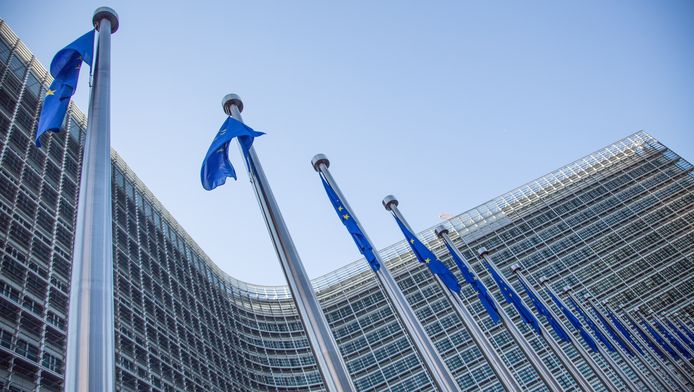The majority of Europeans believes that the EU's recovery funds should only be awarded to countries that follow the rule of law and democratic principles, a recent survey conducted by the European Parliament found.
More than four out of five respondents (81%) indicated to be in favour of conditionality of the EU's financial support within the framework of the NextGenerationEU programme, showing "clear public support for transparency and effective control of EU funds."
"The European Parliament has been clear that EU Recovery Funds should not go to governments that do not respect core democratic values or uphold the Rule of Law," said European Parliament President David Sassoli.
"This survey confirms that an overwhelming majority of EU citizens agree. If you consistently undermine EU values, you should not expect EU funds," he added.
Clear objectives
The Parliament, alongside the European Commission, closely assessed the Member States' plans for financial aid for the relaunch of the economy post-pandemic earmarked under the EU’s Recovery and Resilience Facility to ensure they are used in line with the objectives of a "greener, more digital and resilient European society."
For the EU as a whole, the plan includes up to €672.5 billion to support investments and reforms across the EU.
Members of the European Parliament (MEPs) have repeatedly been urging the Commission to activate a "conditionality instrument" to prevent certain EU countries that are accused of going against the bloc's values from benefiting from EU financial support.
The European Commission throughout the summer withheld approval of national pandemic stimulus plans for various countries, including Poland and Hungary, reportedly over concerns about the primacy of EU law, including press freedoms, LGTBQ+ rights and compromising of judicial independence.
In the case of Hungary which has asked for more than €7 billion in grants, the Commission has said the withholding of funds is in response to corruption allegations and a lack of a safeguard again funds being used for other means.
However, Hungary's Prime Minister Viktor Orban’s government argues the Commission is using it as leverage to punish the country for passing its recent and heavily criticised LGBTQ+ law, which Commission President Ursula von der Leyen said "clearly discriminates against people based on their sexual orientation and goes against the fundamental values of the European Union: human dignity, equality and human rights."
At the end of last year, during negotiations on the EU's multiannual budget, the conditionality mechanism was accepted by Poland and Hungary following discussions, however, according to the promises of the European Council, this could only be activated after a ruling by the Court of Justice of the European Union (CJEU).
Cases against Poland, with regards to the Polish law on the disciplinary regime against judges, which the EU argues is not compatible with EU law, and against Hungary within the CJEU are ongoing.
Use of funds
The survey also found that 60% of Europeans expect NextGenerationEU projects and the funding they receive to help their country overcome the economic and social damage brought about by the coronavirus pandemic. In Belgium, around 55% of respondents agreed with this statement.
Whilst 45% of citizens trust their governments to use the funds wisely, around two-fifth (41%) of respondents express doubt about the capacity of their national governments to use the additional funds properly.
In Belgium, this figure was slightly lower, with 36% of respondents questioning whether the national government can be trusted to invest the funding in an effective way.
In line with the general consensus across the bloc, many respondents in Belgium (44%) named global warming as one of the top three most important priorities that the Parliament should be focussing on.
Meanwhile, in Poland and Hungary, where questions have been raised around the state of "Democracy and the rule of law" on a national level, this item made it into the top three priorities that should be focused on by the Parliament, whilst on EU average, it comes in eighth place.

